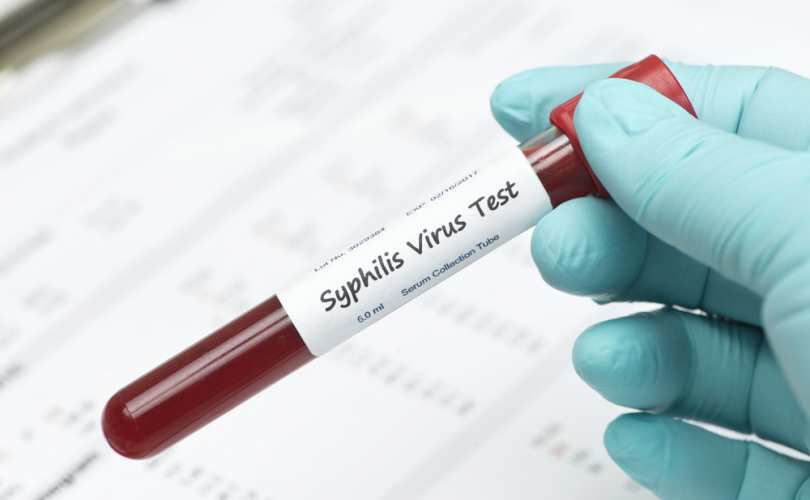Can STDs Up the Risk of Cerebral Palsy in Newborns?

Untreated Sexually Transmitted Diseases (STDs) have been linked to a plethora of health issues in both expecting mothers and their children. But can a STD cause a lifelong debilitating condition such as cerebral palsy in a newborn on its own?
If left untreated, some STDs have been linked to cerebral palsy in babies. So far, the following have been identified as risk factors for birth defects: genital herpes, chlamydia, Syphilis, and gonorrhea. We will address each of these conditions separately and take a closer look at what is cerebral palsy.
What Is Cerebral Palsy?

Cerebral Palsy (CP) is an umbrella term that reunites all the symptoms affecting a small child in the wake of a brain injury that leads to a permanent deficit in the child’s motor function. CP is the most common motor disability affecting young children and the most challenging childhood neurological issue after mental retardation and epilepsy.
According to the most recent numbers, there are more than 750,000 people living with cerebral palsy, and more than 10,000 new cases are discovered each year.
The most common causes of CP include:
Botched Medical Procedures

Head trauma during delivery has been identified as the leading cause of CP. This can happen for a variety of reasons:
- Excessive pressure by the medical staff on the baby’s neck or head
- The baby is above average size
- The baby is not in the right position
- Use of devices like vacuums
- Failure to perform C-section when needed
Prolonged Labour

If labor lasts more than 16 to 24 hours, then it places the baby in danger. Cerebral palsy is just one of the many possible complications that might be brought on by prolonged labor.
When this happens, the oxygen levels in the womb can reach dangerously low levels, which might deprive the unborn child’s brain of oxygen. Furthermore, the medical staff must often resort to the use of medical instruments for delivery, which might cause damage to the little one’s head.
Failure to Treat Birth Complication
During delivery, certain situations might occur that can result in birth complications. It is the responsibility of the medical staff to identify and treat these complications. They should closely monitor the stats of mother and child and take appropriate measures for situations that might occur during birth.
The baby might be in an improper position in the utero. It can be dangerous for both mother and child if the labor starts under these conditions. But sometimes this can be prevented by helping the baby find the right position through gentle massages applied to the mother’s belly.
Also, the medical staff should identify and treat any viral and bacterial infections that occur during pregnancy. If left untreated, it can lead to complications, including PC. Furthermore, failure to monitor a baby’s heart, or to detect signs of distress, can also up the risk of PC.
Being Under the Influence
Cerebral palsy in a newborn can also be brought on if the mother consumes high levels of alcohol or drugs during the pregnancy period. What is more, some prescription medication might also cause complications to the baby’s health. Therefore, it is important to have your doctor supervise any medication you take before you give birth.
Can STDs in the Mother Up the Baby’s Risk of Cerebral Palsy?
Some STDs can boost the risk of brain damage and cerebral palsy in unborn babies if they are left untreated. Syphilis, genital herpes, chlamydia, and gonorrhea can all boost a baby’s risk of birth defects including cerebral palsy, regardless if the infection gets transmitted to the baby during delivery or not.
-
Syphilis

Syphilis is a bacterial infection usually contracted through unprotected sexual intercourse that can cause stillbirths, nerve damage, meningitis, jaundice, deafness, and life-threatening anemia in the newborn. Around 40% of children born to mothers with syphilis die at birth because of the infection. In its early stages, syphilis can be cured with antibiotics.
-
Genital Herpes
Genital herpes is a sexually transmitted viral infection that is less deadly for the child than syphilis, but nearly just as risky. It can be passed down to the baby during delivery, so your doctor may recommend a C-section. Around 9 in 10 women that have genital herpes do not know they have it. Untreated genital herpes can cause premature birth and severe brain damage that can cause cerebral palsy in the baby. There is no cure for this infection, but there are treatments that can alleviate its symptoms.
-
Chlamydia

Chlamydia is a sexually transmitted bacterial infection that can trigger irreversible damage to a woman’s reproductive system. If left untreated, it can also cause pregnancies outside the womb, premature delivery, low birth weight, eye and lung infections, and cerebral palsy. Low birth weight and premature delivery are also two major risk factors for cerebral palsy. Chlamydia can spur inflammatory pelvic disease, which can cause a stroke and cerebral palsy in the unborn baby.
-
Gonorrhea
Just like chlamydia, gonorrhea is a sexually transmitted bacterial infection that can cause severe birth complications, including cerebral palsy in the baby. If left untreated, gonorrhea too may cause inflammatory pelvic disease and up the baby’s risk of cerebral palsy. Gonorrhea can be transmitted to the baby, so it is highly recommended to cure it before delivery.
To Wrap It Up
Cerebral palsy is a crippling neurological disease that can lead to lifelong disability and extremely poor quality of life. There are many factors that can trigger the condition in a newborn but some of the preventable ones include sexually transmitted diseases.
Just like cerebral palsy in its early stages, STDs can fly under the radar for many months after transmission. However, an early diagnosis is critical in cerebral palsy for early intervention and for the improvement of the outcomes. So, new moms with untreated STDs should keep an eye on the early signs and symptoms of CP in their babies. Check out the link and read more about the warning signs of cerebral palsy.




